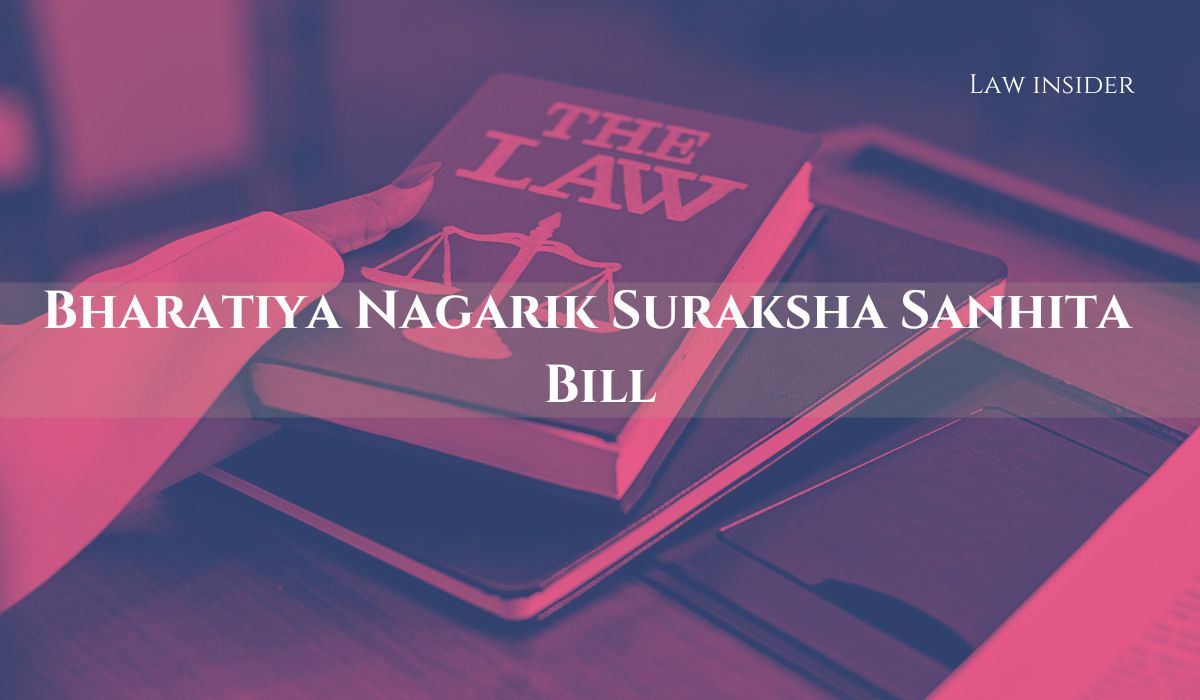LI Network
Published on: 16 August 2023 at 13:56 IST
The Bharatiya Nagarik Suraksha Sanhita (BNSS) Bill, designed to replace the colonial-era CrPC, introduces significant modifications to the criminal justice system,
The Bharatiya Nyaya Sanhita (BNS) Bill and the Bharatiya Sakshya (BS) Bill have also been introduced in the Lok Sabha, intending to replace the Indian Penal Code, 1860, and the Indian Evidence Act, 1872. These three proposed bills have been referred to a parliamentary panel for thorough examination.
The Criminal Procedure bill aligns with the Digital India initiative by the government, aiming to promote the utilization of technology, thereby enabling trials through video-conferencing.
The BNSS encompasses fresh provisions, categorizing waging war against a foreign government at peace with India or committing depredation on the territory of such a foreign state as offenses punishable by imprisonment for up to seven years.
The Bharatiya Nagarik Suraksha Sanhita introduces several noteworthy changes:
1. Audio-Video Electronic Communication Devices: The Bill allows for the use of audio-video electronic communication devices (Section 2 (a) and (f)).
2. Handcuffing of Offenders: In certain grievous offences, handcuffing of offenders is permitted (Section 43(3)).
3. Electronic Modes of Communication: Electronic modes of communication are permitted for various purposes, including identification of accused, serving summons, recording statements of accused and witnesses, recording search and seizure, and conducting trials (Sections 54, 63, 316, 265(1), 176(3), and 532).
4. Immunity for Armed Forces: No case can be registered against a member of the Armed Forces for acts done in obedience to orders in the discharge of official duties, without a preliminary inquiry (Section 151(2)).
5. Preliminary Enquiry: A preliminary enquiry is required before conducting an investigation for offences punishable between 3-7 years (Section 173(3)).
6. Forensics Expert Involvement: For offences punishable for more than 7 years, a forensics expert must collect evidence and videograph the process at the crime scene (Section 176(3)).
7. Complaints Against Public Servants: Cognizance of complaints against public servants can be taken after receiving a report from their superiors (Section 210(3)).
8. Custody Restrictions: Detention in police custody is allowed only in a police station, and detention in judicial custody only in a prison or government-declared place (Section 187).
9. Progress Report to Victim or Complainant: Police are to inform the victim or complainant about the progress of the investigation within 90 days (Section 193(3)(ii)).
10. Investigation During Trial: Investigation can be conducted during the trial, with court permission, to be completed within 90 days (Section 0.12).
11. Filing Discharge Application: Accused can file a discharge application within 90 days, extendable to 180 days (Section 250).
12. Timely Judgments: Acquittal or conviction judgments must be given within 30 days, extendable up to 60 days with reasons (Section 258).
13. Presence of Witnesses: Ensures the presence of successor officer if a witness is transferred or incapable of deposing (Section 336).
14. Limited Adjournments: No more than two adjournments can be granted during hearings (Section 346).
15. Proclaimed Offender’s Trial: Trial may proceed if a proclaimed offender is absent, deeming waiver of right to be present (Section 356).
16. Witness Protection Schemes: State governments are empowered to notify witness protection schemes (Section 398).
17. Mercy Petitions: Mercy petitions by capital punishment convicts or their legal heirs must be filed within 30 days of certain events (Section 473).
18. Bail Definition: Bail is defined (Section 479), and anticipatory bail can be granted by the court if deemed fit (Section 484).
While the BNSS introduces these changes, it also has some limitations:
1. Electronic Modes of Communication: Although the BNSS allows electronic recording of statements, the requirement for physical signatures may hinder electronic recording.
2. Preliminary Enquiry: The requirement for a DSP-level officer to conduct a preliminary enquiry before investigation might lead to evidence delay.
3. Investigation During Trial: Allowing investigation during the trial could potentially cause delays.
4. Handcuffing Powers: Allowing handcuffs for certain offences may infringe on fundamental rights.
5. Anticipatory Bail Criteria: The new provision for anticipatory bail lacks clarity on factors for granting it.
6. Transit Bail: Transit bail is not defined in the BNSS.
Overall, this comprehensive bill seeks to modernize criminal procedures, enhance transparency, and ensure a fair and efficient legal process.

